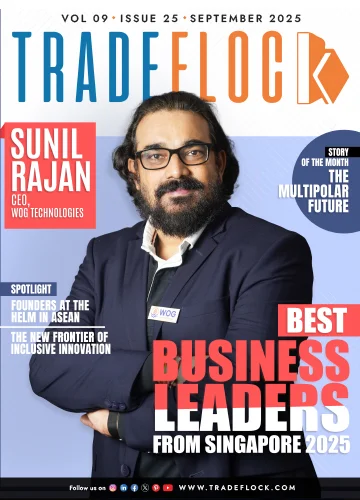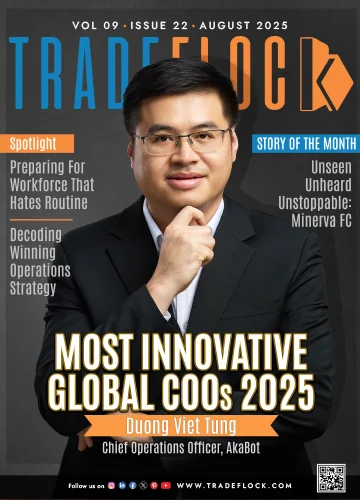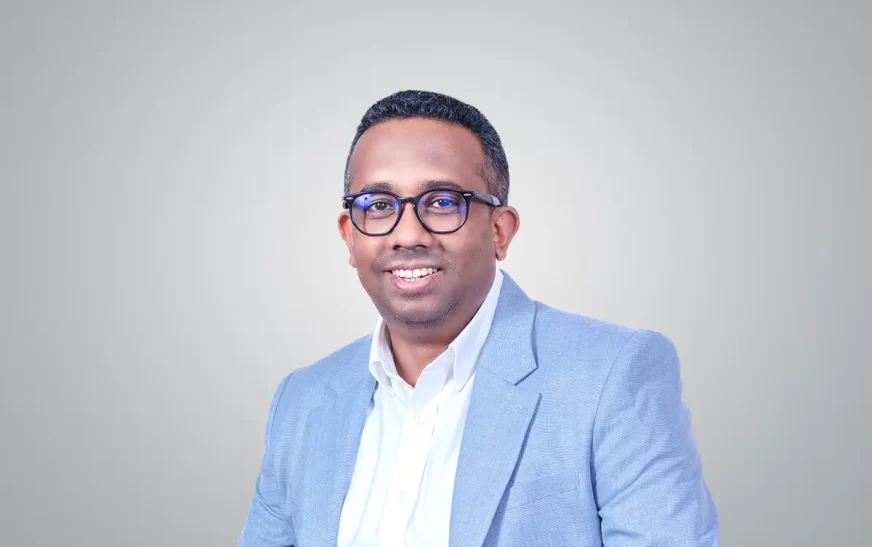
Building Lasting People, Performance, And Partnerships
Chris Walcher
Vice President of Sales
Cedar Financial


Building Lasting People, Performance, And Partnerships
Chris Walcher
Vice President of Sales
Cedar Financial
Chrish Walcher -Visionary Global Corporate Leaders To Watch
Success has no one-type-fits-all definition. Some leaders define success in numbers, but Chris Walcher, Vice President of Sales of Cedar Financial, defines it in people. Chris Walcher has never been one to wait for direction—his motto, “Never wait to be told when to succeed,” has guided him from the soccer field to the corporate world. As head coach of Cal State Northridge’s women’s soccer program, he led teams to championships while learning that leadership is about bringing out the best in individuals. That same mindset fueled his rise at Cedar Financial, where he climbed from Account Executive to Vice President of Sales in under a decade. Alongside his corporate career, Chris cofounded the Mutual Connections vodcast and now hosts Dadgood, giving voice to authentic stories of leadership and fatherhood. In an exclusive conversation with TradeFlock, he shares his vision, challenges, and the future he is helping to shape.
What key moments shaped your sales leadership journey, and which milestone stands out most?
My journey from frontline sales to VP of Sales has been defined by pivotal moments that shaped my leadership philosophy. Early in my sales career, I learned that setbacks weren’t failures but lessons. A mentor told me to “chase the no’s,” which reshaped how I saw rejection and gave me resilience. Over time, I built a habit of dissecting both wins and losses, creating a personal playbook that helped me grow with intention. Another turning point came before my corporate career, when I coached Women’s College Soccer. Leading athletes taught me that motivation is personal—some thrive on intensity, others on encouragement. That lesson in adaptability has stayed central to how I lead teams. The milestone I’m most proud of is stepping into the VP of Sales role. It wasn’t just a title, but recognition of years of persistence, learning, and the privilege of inspiring others.
Which innovation at Cedar Financial is driving the biggest impact on recovery rates?
At Cedar Financial, the biggest shift has come from launching our intelligent recovery platform, CollectCo. It blends technology, data, and human expertise in a way that truly changes how accounts are managed. The first phase, Quick Collect, focuses on accounts likely to repay. With flat-fee recovery, clients save up to 80% in fees compared to traditional models. Accounts that remain unresolved move into Power Collect, where tools like credit reporting, legal escalation, and tailored negotiations drive stronger results. What makes CollectCo powerful is how it connects with people. We use omni-channel outreach—email, SMS, chatbots, self-service portals—alongside traditional calls and letters. Our AI models, built on decades of data, predict repayment likelihood so we can focus resources where they matter most. It’s a blend of innovation and 35 years of expertise that helps clients protect revenue while keeping consumer trust intact.
What process change should leaders adopt, and what advice guides your leadership?
If I could suggest one change for enterprise leaders, it would be to intervene earlier in the accounts receivable cycle. Too often, companies wait until accounts are far delinquent, when recovery rates have already dropped. By engaging recovery partners sooner—supported by analytics that predict repayment—you preserve more revenue and protect relationships before they sour. The best advice I’ve received is: “Leadership is about creating impact, not control.” Early in my career, I thought leading meant directing outcomes. Over time, I learned it’s about building trust, empowering others, and creating an environment where people can succeed. Success isn’t measured by how much authority you have, but by how much growth you spark in those around you.
What’s the toughest sales challenge today, and how are you tackling it?
The hardest challenge right now is standing out in a crowded market. Too many sales professionals still rely on “spray and pray” emails, which only erode trust. To overcome this, I focus on building relationships that can’t be automated. Social selling on LinkedIn, personalized videos or audio messages, and sharing thought leadership all help create meaningful connections. Sometimes, I’ll send tailored gifts that reflect a prospect’s interests—small gestures that show real thought. Most importantly, I invest in in-person interactions. Being present in real life stands out as a powerful differentiator. For me, long-term trust always outweighs short-term wins.
How do you mentor your team to turn compliance and trust into sales advantages?
In debt recovery, compliance is often seen as a burden, but I see it as one of our strongest advantages. “Compliance is not a box to check, but a cornerstone of value creation.” Clients trust us more when they know their brand and their customers are in safe hands. When I mentor my team, I remind them that compliance isn’t just a checklist—it’s a way to create value. A salesperson who can clearly explain how we protect data, follow regulations, and treat consumers with dignity immediately stands apart. I encourage them to talk confidently about GDPR, CFPB, and industry best practices, not as restrictions, but as proof of our integrity. I also coach them to frame compliance as a risk reducer. Clients want partners who protect both finances and reputation. “Trust, once established, becomes the foundation of long-term, high-value relationships.”














